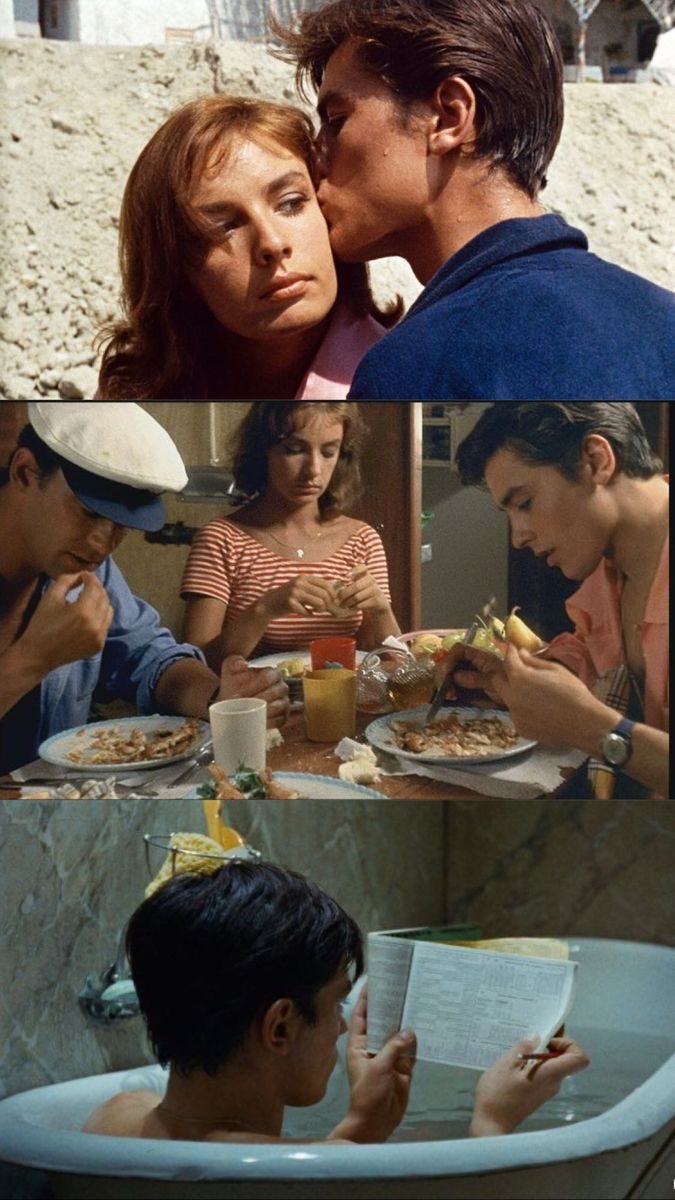there’s a peculiar sensation that arrives not with fanfare but as a slow, insistent whisper, lingering beneath the surface of daily life. it is not the urgency of crisis, nor the raw ache of loss, but something more insidious, a dull pulse of discontent woven through the fabric of stability. it is the existential boredom of wanting more. you find yourself here not because you lack, but because you have enough. enough to keep the machinery of living moving without collapse, enough to cross the thresholds that once seemed insurmountable. the chaos that once defined your existence has softened into routine, your body no longer primed for emergency. and yet, inside the still order of your days, a certain restlessness persists — a craving for a texture of life that seems perpetually out of reach. this longing is difficult to articulate because it is not a hunger easily satisfied. it is not solved by the next achievement, the next purchase, or the next grand gesture of reinvention. nor is it assuaged by the relentless scroll of social media, where curated moments of thrill and belonging are exchanged with the cold swipe of endless comparison. in fact, this culture of relentless optimization often deepens the ache, convincing us that the remedy lies in becoming more productive, more visible, more branded.
philosophers and writers have long traced this condition. victor frankl, in his reflections on the human search for meaning amid suffering, described what he called the “existential vacuum” — a sense of emptiness not born from hardship but from the absence of a unifying purpose in the comfortable zones of postmodern life. this is the vacuum that yawns beneath the polished surfaces of safety and success, where the absence of clear narrative leaves a void filled by an unnamable desire. the existential boredom of wanting more is both a personal and cultural phenomenon. it is the symptom of a world that offers unprecedented choice yet few maps for navigating the inner landscapes those choices unveil. it is the shadow cast by the dissolution of traditional anchors — family, religion, community — which once furnished meaning as a birthright rather than a project.
contemporary literature, particularly the works of sally rooney, captures this unease with precise empathy. her characters inhabit lives of relative privilege, yet their narratives pulse with an acute awareness of emotional saturation and the limits of self-knowledge. they embody the paradox of knowing oneself too well to be fully liberated, yet not well enough to escape the restlessness of wanting something just beyond reach. this feeling is also a symptom of the digital age’s paradox: hyperconnectivity paired with profound disconnection. social media’s architecture thrives on stirring desire — desire for validation, desire for novelty, desire for identity — but its rewards are fleeting. the dopamine spikes that accompany likes and follows do not translate into sustained fulfillment. instead, they often exacerbate the sensation of lack, as each digital interaction becomes a reminder of what one does not have or is not.
there is a historical resonance here as well. in the early 20th century, existential thinkers like albert camus and jean-paul sartre wrestled with absurdity — the conflict between human beings’ search for meaning and the silent, indifferent universe. camus famously described the “tender indifference” of the world, a condition that demands the individual create meaning despite inherent meaninglessness. the boredom we feel today might be the latest iteration of this tension: a call to engage deeply with life’s ambiguity, rather than retreat into the comfortable illusion of progress. yet, this existential boredom can also be a portal. it invites a reconsideration of what “more” actually means. more is often conflated with external expansion — more achievements, more experiences, more intensity — but what if the answer lies in contraction? in attending with greater presence to the ordinary textures of life, the hum of routine, the subtle shades of emotion that escape social media’s highlight reel? virginia woolf’s reflections in her diaries reveal this tension beautifully. she described moments of intense awareness in the mundane — the way light shifts through a window, the sound of rain on a roof — as gateways to a deeper sense of self and the world. these are not moments of exhilaration but of profound stillness and belonging, a testimony to the idea that meaning is often folded into the fabric of everyday experience rather than in dramatic epiphanies.
this does not diminish the reality of the boredom or the yearning. it honors it instead, recognizing that longing is part of the human condition, especially in a culture that prizes achievement and visibility. the discomfort is not a flaw but a signal — a nuanced invitation to explore inner landscapes often neglected in the rush for outward success. embracing this invitation requires resisting the urge to fix or distract. it demands patience with ambivalence and the courage to sit with sensations that may feel uncomfortable or unproductive. it involves recognizing that the ache of wanting more might not be a call to change but a call to feel more deeply — to perceive life with greater nuance and tenderness. the paradox is that in the act of slowing down, in allowing boredom to be not a problem but a presence, new forms of meaning can emerge. these are not grand narratives but subtle, evolving understandings — the realization that life’s fullness includes stillness and longing, ordinariness and depth, satisfaction and yearning intertwined.
in a culture obsessed with branding the self and curating identities, the existential boredom of wanting more resists easy categorization. it cannot be packaged or performed. it insists on authenticity and vulnerability, demanding that we acknowledge the limits of progress and the value of presence. ultimately, this boredom may be less about what is missing and more about what we have yet to appreciate. it asks us to reconsider the nature of fulfillment, not as a destination but as a dynamic relationship with our lives as they are — flawed, incomplete, and constantly in motion. the ache beneath the surface of enough is not a failure; it is a sign of consciousness. it is the human pulse beneath the calm, a reminder that to want more is to be alive in a world that offers no easy answers but infinite possibility.






So craftfully written. How beautifully you drive the points home
It's quite an unsettling phenomenon that we never have the time to pause and observe where our inner map is pointing at. The fast paced style of living our lives and the incessant want of 'living with a purpose' (that are mostly manufactured, can't possibly call them our own) has been eroding our lives of it's nutritional elements. We go in circles searching for purpose and meaning that would sooth us into believing that we matter, that our lives matter, but never really look within to find the answers that have been lying bare all this while because we are too busy to spend time with ourselves.
I must say Ayushi, each post of yours is a mirror imaging my dilemmas and confusions. I don't think you need to hear this from me, because it's nothing new: You do possess one outstanding quality to look at life deeply without enamouring it with glamour and drama. You're 100% correct about living a life without the pressure to perform, optimize, and 'dramatic epiphanies'.